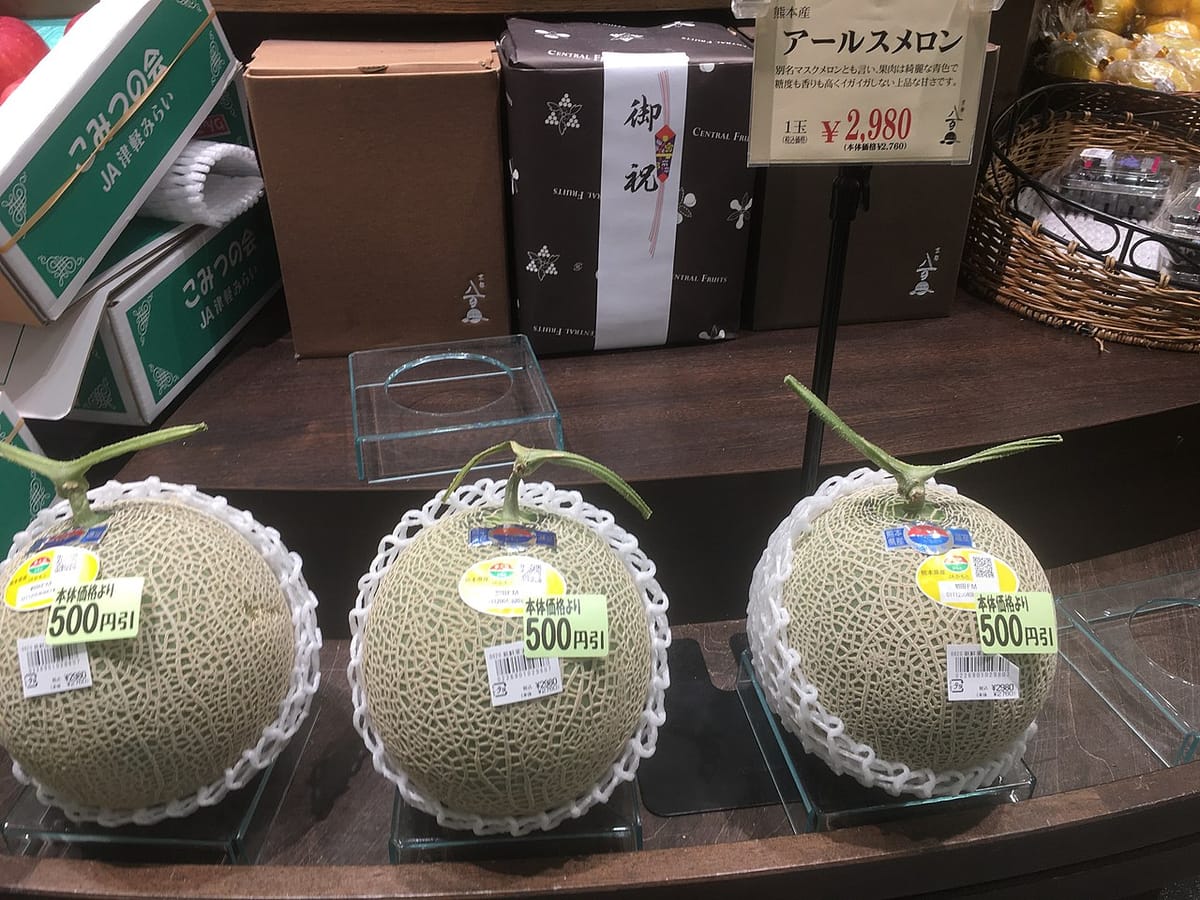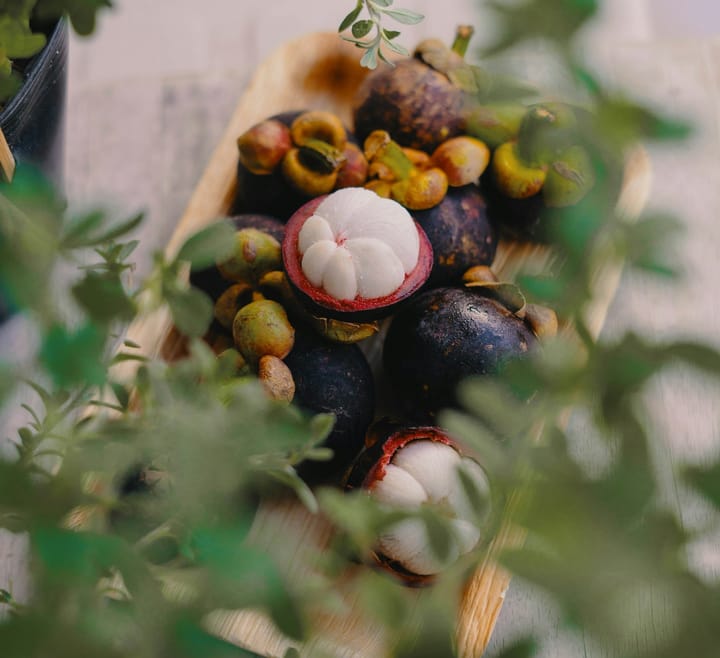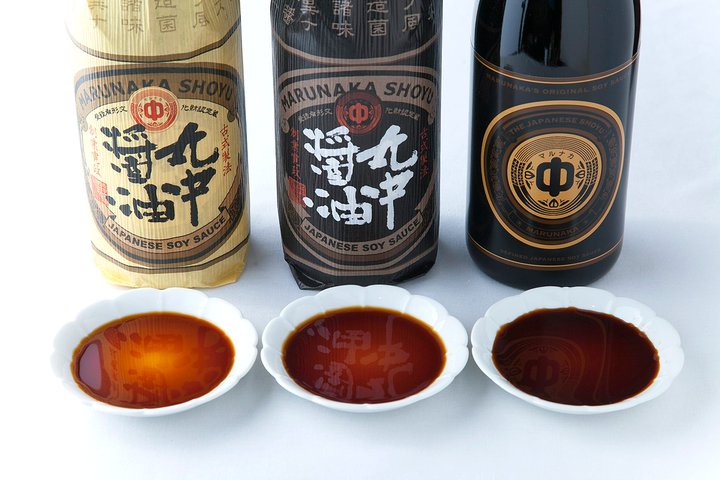Chūgen: Celebrating the Midsummer Festival of Giving in Japan
In Midsummer, Japan celebrates Chūgen, a centuries-old festival of gratitude and gift-giving. Rooted in Buddhist traditions, Chūgen offers a window into Japanese culture and values, from its origins in honoring ancestors to modern exchanges of premium gifts like the prized Yubari King melon.

The Origins and Meaning of Chūgen
Chūgen, also known as O-chūgen (お中元), is a Japanese midsummer gift-giving tradition that typically takes place in mid-July.
The name "Chūgen" literally means "middle of the year" or "midsummer," signifying its timing on the calendar.
The origins of Chūgen can be traced back to the Nara period (710-784 AD) and the influence of Buddhist teachings.
In Buddhism, the 15th day of the 7th month, known as Urabon or Obon, is a time to honor the spirits of one's ancestors.
It was believed that during this period, the ancestors' spirits would return to the world of the living.
Over time, the custom of offering gifts to the deceased evolved into a tradition of giving gifts to the living, particularly to those to whom one feels indebted or grateful.
This could include family members, friends, teachers, employers, or business associates.
The act of giving gifts during Chūgen is seen as a way to express appreciation, build and maintain relationships, and pay respects to those who have provided support or assistance throughout the year.
It's a time to reflect on the bonds that tie people together and to reinforce those connections through tangible expressions of gratitude.
Traditional and Modern Chūgen Gifts
Historically, Chūgen gifts often consisted of practical, everyday items that were useful during the hot summer months.
These could include hand fans, towels, or food items such as somen noodles, which are light and refreshing in the summer heat.
However, as Japan's economy and consumer culture evolved, so did the nature of Chūgen gifts.
Today, popular Chūgen gifts include high-quality foodstuffs, elegant tableware, fashion accessories, or even gift vouchers. Department stores and online retailers often offer special Chūgen gift sets during this season.
The Yubari King Melon: A Crowning Example of Modern Chūgen Gift-Giving in Japan
One particularly lavish and famous Chūgen gift is the Yubari King melon, a premium variety of cantaloupe grown in the city of Yubari, Hokkaido.
These melons are renowned for their exceptional sweetness, aroma, and perfect proportions, and can fetch prices of over 200,000 yen (roughly $1,800 USD) for a single fruit.
Giving a Yubari King melon as a Chūgen gift is a gesture of the utmost respect and appreciation, given the fruit's rarity and value.
Other high-end fruit like premium mangoes, peaches, or grapes are also popular Chūgen gifts, as are gourmet food items like wagyu beef, top-grade tea leaves, or artisanal sakes.
The emphasis is often on quality, presentation, and the thoughtfulness of the selection, rather than the actual utility of the gift.
The Etiquette of Chūgen Gift-Giving
Like many aspects of Japanese culture, the giving and receiving of Chūgen gifts is governed by a set of unwritten rules and social expectations.
Navigating these norms is seen as an important part of maintaining harmonious relationships.
One key principle is reciprocity. If one receives a Chūgen gift, it's generally expected that they will give a gift in return, either during Chūgen or at the end of the year during the similar O-seibo gift-giving season.
The value of the reciprocal gift should roughly match that of the received gift, to avoid the appearance of either stinginess or ostentation.
The presentation of the gift is also important. Chūgen gifts are typically beautifully wrapped, often in specialty paper or boxes that reflect the summer season or the nature of the gift.
The wrapping itself is considered part of the gift and is a sign of the care and respect given to the recipient.
When receiving a Chūgen gift, it's customary to express gratitude both for the gift itself and for the giver's thoughtfulness.
Even if the gift is not to one's personal taste, the sentiment behind it is what matters most.
Chūgen in the Modern Era
While the traditional roots of Chūgen remain, the practice has also adapted to the realities of modern Japanese life.
With the rise of online shopping and delivery services, it's now common to send Chūgen gifts electronically or have them delivered directly to the recipient's home.
Some companies and organizations also handle Chūgen gift-giving on behalf of their employees, as a way of building goodwill with clients or business partners.
In these cases, the gifts are often standardized and branded with the company's logo.
There's also been a trend towards more personalized or experiential Chūgen gifts, such as spa vouchers, gourmet dining experiences, or even travel packages.
These gifts cater to the increasing value placed on leisure and self-care in modern Japanese society.
Despite these modern twists, the core spirit of Chūgen remains the same: to express gratitude, foster connections, and celebrate the bonds that tie people together.
In a fast-paced, often impersonal world, Chūgen serves as a reminder to pause, appreciate, and nurture the relationships that enrich our lives.
A Window into Japanese Culture
The Chūgen festival offers a fascinating insight into Japanese culture and values. It highlights the importance placed on gratitude, reciprocity, and the maintenance of social bonds.
The tradition also reflects the Japanese appreciation for seasonality and the marking of time through ritual and celebration.
Just as the seasons change, so too do the opportunities to reflect, appreciate, and renew the ties that bind us.
Moreover, the emphasis on quality and presentation in Chūgen gift-giving is a reflection of the Japanese aesthetic of "omotenashi," or the art of hospitality.
The care taken in selecting and presenting a gift is a sign of the respect and consideration given to the recipient.
In a broader sense, Chūgen is part of the complex web of social obligations and expectations that shape Japanese society.
By participating in these rituals, individuals reaffirm their place within their families, communities, and social networks.
Conclusion: A Timeless Tradition in a Changing World
From its ancient Buddhist roots to its modern-day expressions, the Chūgen festival has remained a cherished part of Japanese culture.
While the specifics of the gifts may have changed, the underlying sentiments of gratitude, connection, and appreciation remain constant.
Whether it's a perfectly crafted Yubari King melon, a thoughtfully selected gift set, or a heartfelt message of thanks, Chūgen gifts serve as tangible reminders of the bonds that tie us together.
They are a way of saying, "I value our relationship, and I am grateful for your presence in my life."


